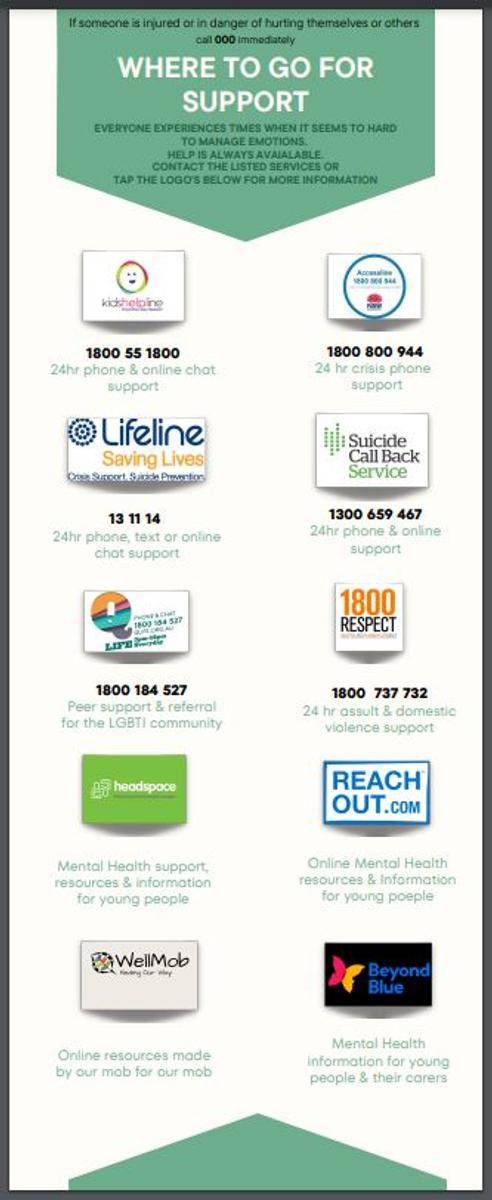Wellbeing Matters

What do I do if I am worried about my child's mental health?
This is a question we hear quite often, and it is a valid question.
When our children have a cold, we might head into the pharmacy to get some medicine. Or if they happen to break a bone we go to the GP or hospital.
But as a parent what can we do if we are worried about our child's mental health?
You may have noticed they haven’t been themselves. They may be lacking energy or motivation and have feelings of hopelessness about the future. Your child may be more emotional than usual, including anger, worry, sadness and crying. You could also notice changes in their sleeping or eating and they may be less social than usual.
The first step to helping your child is having a conversation with them about what you may have observed. Choose a nice quiet place to have this conversation (I know this can be hard in a busy household), you may even wish to go for a drive. You may like to try "Is there anything you wanted to talk about? You haven't really seemed yourself lately." Keep in mind that fear of being judged or treated differently can stop children opening up at first. Children may find it difficult to find the words to express how they feel. Be patient and encouraging. If they aren't ready to talk things through it’s ok. Try not to push.
What do I do next?
Take their feelings seriously; if your child shares that things aren't ok, get professional support – especially if your child talks about feeling hopeless and/or thoughts of suicide. You are not expected to be a counsellor. Reach out for help.
- Accessline is available 24/7 ph: 1800 800 944. You can call them for advice or if you are worried. They will give you advice on where to next and what services are available.
- Visit your GP with your child. They may help to map out a mental health plan.
- Contact Kids Helpline on 1800 551 800. They are available for counselling 24/7 either via the phone or online via email or webchat.
Most importantly if you are any stage concerned that your child is at risk of immediate harm, present to the emergency department ASAP or call for an ambulance.
Please know you are not alone. I am hoping that by talking about mental health, just like we talk about sending someone to the doctor when they have a cold, that parents, families, and our community can be armed with useful and positive information about seeking assistance. If you require any further information regarding services that are available, please do not hesitate to get in touch.
Together we can ensure that our students are happy, healthy, and safe.
NSW Mental Health Accessline
1800 011 511
Access line is available to anyone living in the Murrumbidgee Local Health District region. It is staffed by mental health professionals and open 7 days a week, 24 hours a day.
The service can provide advice and assistance to:
- People experiencing issues with their own mental health or drug and/or alcohol use.
- Carers and people supporting loved ones with mental health and/or drug or alcohol issues.
- People who are worried about the mental health of someone they know.
- Health Professionals (including GPs, service providers and emergency services workers).
Free relaxation apps:
Headspace – mindfulness/meditation
Smiling Mind – mindfulness/meditation
My Calm Beat – slow breathing training
If unsure where to go for help, please do not hesitate to get in touch with your child’s teacher or year advisor. Students can also self-refer to the Student Support Officer. Together we can find the help and assistance you need.
We are here to help.
Alternatively, you can access the services below by phone or online.
Use this link for further information.
Further help online or on the phone:
Free programs available online suitable for children and adolescents (and parents)
Bite Back: an online program for well-being and resilience 13-16 years.
Brave program: an online program for anxiety for children and adolescents as well as parents visit https://brave4you.psy.uq.edu.au/
Taryn Riles - Student Support Officer

